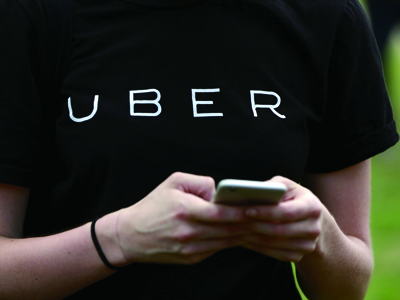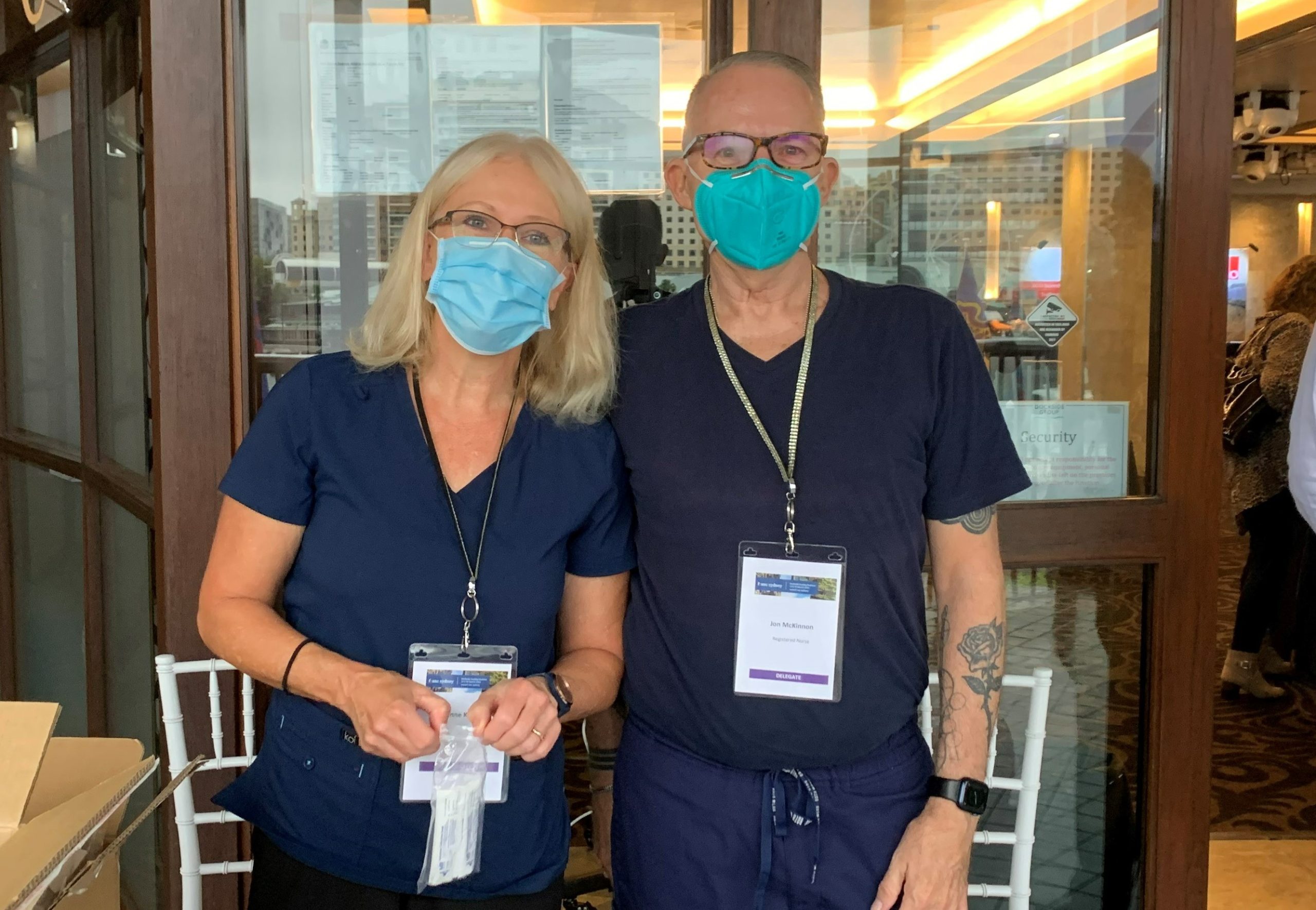The big players in the sharing economy have moved way past being boundary-breaking upstarts, becoming instead both market disruptors and household names.
Last year, for example, global accommodation company Airbnb projected its 2015 revenue would reach US$900 million, more than triple the recorded revenue of US$250 million in 2013. The company’s revenue is expected to grow to $10 billion in 2020. But while services such as ride-hailing pioneer Uber and Airbnb have been embraced by leisure travellers, there has been slow uptake for business events travel, with conservative travel policies largely to blame.

But this is now changing. Travel and expense management software company Certify has released a report showing that the use of Uber for business travel in the US eclipsed car rentals for the first time ever in the fourth quarter of 2015, as a percentage of total rides.
The issue will be discussed at a special forum at Imex Frankfurt in April featuring pioneers of these new tech companies and meetings industry leaders. Organisers of the forum, including meetings and incentive consultant Pádraic Gilligan, say the likes of Airbnb and Uber are here to stay and cannot be ignored by the industry. This is particularly so considering how some cities in the US have looked to Airbnb to cope with the influx of visitors attracted by mega events such as the Superbowl.
Dorian Stonie, senior manager global travel and tech solutions at Salesforce, told the Lanyon Live 2015 conference last October in Dallas that the cloud computing company’s annual convention in San Francisco looked to Airbnb to meet room demand. This was particularly helpful in accommodating attendees from Asia and Europe.
On the hotel front, Starwood and Hilton in the US have partnered with Uber in schemes that let guests earn loyalty points by booking through the rideshare platform.
In Asia, cievents used Airbnb to help a client who wanted to hold a meeting for about 30 people in Japan at short notice. “The meeting was planned very last minute and it was peak season in Osaka, so it was impossible to find one hotel that could accommodate the group,” says Carly Lewis, cievents’ general manager for Asia. “We turned to Airbnb and were able to find accommodation for everyone and then just contract the meeting venue through a hotel.
But Lewis adds: “This was a great solution in this case, but would not have worked had the group been much larger.
“We know companies that have begun to use Uber and Airbnb mainly as part of their corporate travel policies. From an event perspective, these services are just starting to integrate into the market. Uber is more prevalent as it can be a good way to save money on airport transfers,” she says.
Nevo Hadas, a partner at South Africa-based tech services company &Innovation, travels on an individual basis twice a month for meetings and admits there can be frustrations if relying on sharing-based services. “I like using Airbnb as I get better quality accommodation than at a hotel at a better price. Uber is easy because I don’t need local currency, and I don’t worry about getting ripped off because I have an estimate before I get in the car,” Hadas says.
“But, check-ins can be complicated, especially if you are working the day you arrive and you land early. Check-ins are normally at 2pm and you can’t drop off your bags at reception like you can at a hotel. Also, Uber means data costs: you need to have the app open and it sucks up so much data. It can turn out to be cheaper getting a local cab.”
Event planners need high levels of local knowledge to navigate any unexpected difficulties that arise depending on the country where an event is being held. Lewis, of cievents, says this can have a huge impact on the delegate experience.
“Safety and accessibility are a concern for many of our clients in relation to using sharing economy services in various markets. In Bali for example, which was a very popular event destination in 2015, Uber can be challenging as they do not yet have official access to airport grounds, so guests that use Uber would need to arrange their pick up from the arrivals drop-off area,” says Lewis. “These services are more acceptable in locations where companies already have corporate relationships in place.”

Nirvana’s experience
Chirag Jain, who runs Nirvana Live, a performing arts events company that develops and produces presentations of Indian arts across the world, says he would never recommend using sharing economy accommodation in his home country, but does so outside India.
“I personally take great delight in partaking in the sharing economy,” says Jain. “My greatest takeaway from, let’s say Airbnb is the depth of experience one has compared to staying in a drab hotel room. That it’s cheap is a bonus.”
“Some of our artists come with quirks, so booking a hotel room for them is inescapable,” he says. But whenever possible, and with musicians he knows well, he uses Airbnb.
“Last year we had a presentation in Bali and all of us camped at an Airbnb bungalow. It felt like home. We came back with new friends, some Balinese culinary skills and, of course, memories that hotels could never have provided. When in Europe, we have patrons of Indian arts who open up their houses for us, but that’s economy of another kind.”
Travel policy
While the sharing economy is being embraced by smaller companies, can it become an integral part of corporate travel booking policy?
“Corporates are stuck up, safe players with a million miles of compliances holding them back. I don’t see many of them endorsing this new wave,” says Jain. “But smaller companies and individual travellers will drive business, and, with Airbnb now trying to find ways to standardise stay experience, more people will opt for alternate options.”
Hadas describes the reluctance to embrace sharing economy services as “foolish”: “It’s nice to have a travel policy, but it should be in line with today’s world and its possibilities.”
Many companies are now indeed putting corporate deals in place which pre-determine policies for when sharing economy services can
and can’t be used. This means that any safety concerns have also already been vetted.
“I think the events industry is going to need to continue to be aware of the sharing economy as it becomes a larger part of the general corporate travel industry,” says Lewis. “The accessibility of services like Uber and Airbnb is increasing and will have a direct impact on the corporate travel and MICE markets."
Be wary of fraud
Scamsters have been eyeing the online platforms that are a mainstay of the sharing economy. There have been cases where scamsters set up a fake listing on the Airbnb site, with photographs and details lifted from the other properties on the internet, and priced competitively to lure interest.
They then direct potential guests to an external site, which requests credit card details. Airbnb’s security information warns of scamsters, and states that the company can only protect a traveller’s money if they book through the website itself, but as the scamsters often have an Airbnb email address, and respond after initial contact through the official site, some unsuspecting travellers do not realise they are no longer on Airbnb’s official payment portal.
Anyone looking to book on Airbnb should do all their communicating on platform by clicking the envelope icon at the top of the webpage rather than through personal email. Embedded within the online user guide is also advice to click the red flag to alert Airbnb if someone requests offline payment.
A new age of collaborative business, or a liability timebomb? Two industry experts give their views
Why it won’t work
 Bob Guy
Bob Guy
The conference, meetings and event business is very rules-driven when it comes to arrangements for all services including venues, hotel accommodation, transportation and allied services. This particularly applies to corporate liability and corporate compliance issues. This would be the case where a corporation would fund transport or accommodation for conference or event attendees. It would not matter whether the attendee was an employee, a vendor or a company-paid conference attendee or a guest speaker. If the company or association was paying, a supplier would have to comply with established principles, verifiable licences, licensed operators and the due diligence of the supplier by a company like ours acting as a DMC or meeting planner.
In the case of Uber or Airbnb, the issue of responsibility and liability is still somewhat cloudy. Most corporations require a minimum level of US$1m or GBP 1 million and frontline motor liability and a higher number in third-party public liability. As for drivers, who are often owner-operators, some with private insurance policies, this would not be allowed under compliance policies of a corporation. Neither would the hire of a room or bedroom in a private home. Most homeowner policies would not cover this eventuality.
In this case, the issue would be the conduct of due diligence and the ability to determine if a vendor (homeowner or private vehicle owner) met the required criteria and met reasonable safety expectations. The task of verifying independent owner-operators of transport or hotels (or a single bedroom in a private residence) would be an onerous and impossible task to place on an aggregator. You could imagine the possibilities if there was a vehicle accident, an injury or fatality where the corporation had paid for the transport.
It would not be something that we would undertake. We have a safety management system and conduct due diligence inspections on all of our suppliers wherever they are located.
This would not be an issue if the individual were to take on the responsibility and claim from the sponsoring organisation. However, it is likely a disclaimer or a release-of-liability will have to be signed.
In the case of framework-based events, such as pharmaceutical company-sponsored gatherings, the regulations are even more rigid. In these cases, we have to source and supply only certain types of vehicles (standard cars or vans – no luxury vehicles, but still fully insured and operated by a licensed operator). Certain hotel categories and restaurants to a stipulated maximum budget also have to be considered. This would be a challenge to account for in a “sharing environment”.
There is a tendency in Asia not to consider the issues of liability and responsibility and to favour low-cost. This does not apply across the board, but it certainly does with some organisations.
When we are operating corporate meetings outside Singapore, we must conduct due diligence on the vendors that our suppliers are using or we are using directly. In some countries, insurance is not well regulated and licensing does not require vehicle owners to maintain adequate insurance. In one country we know of, the minimum liability coverage required is US$2,500 per vehicle per incident. This would be unacceptable to the corporation or association that is convening the conference as most corporate customers require a minimum of US$1 million in motor liability.
While the sharing of resources is an important and recognisable trend, it does not serve the meeting and conference industry given the stipulations of corporate sponsors. The rules may change in future, but I simply cannot see a conference attendee or company employee staying in a private home and having the company pay for it as part of the meeting attendance.
Bob Guy is managing director of Cruise Asia by
Destination Asia
It might work -– but it’s not truly sharing
Padraic Gilligan
 I think the term “sharing economy” to categorise the activity of the likes of Uber and Airbnb is actually a misnomer. If I “share” something the implication is that I do so without expectation of financial or other reward and this type of activity has been ongoing for millennia. Collaboration, sharing of resources, exchange of skills etc all pre-exist our modern monetary systems where goods and services are predominantly transacted for cash.
I think the term “sharing economy” to categorise the activity of the likes of Uber and Airbnb is actually a misnomer. If I “share” something the implication is that I do so without expectation of financial or other reward and this type of activity has been ongoing for millennia. Collaboration, sharing of resources, exchange of skills etc all pre-exist our modern monetary systems where goods and services are predominantly transacted for cash.
It continues even today in many communities the world over – even the contemporary practices of car-pooling to the city centre from out-of-town neighbourhoods, sharing school runs or, when you’re a student, staying with friends of friends when visiting an overseas city are clear examples of a “sharing economy” in action where no money exchanges hands.
Companies like Uber and Airbnb have nothing to do with “sharing” in the way outlined above. Both are multibillion-dollar global corporations that will make extraordinary profits because they have developed technology platforms that connect supply and demand in a super-efficient way. They have also provided new product definitions for private transport and for hospitality and are hugely successful because taxis and hotels have long since ceased to surprise and delight us.
Uber and Airbnb – and a host of other similarly styled companies that tend to be defined by the “sharing economy” categorisation – have been circling around the meetings industry and its traditional supply chains for the past couple of years. There has been a tendency to ignore them in the hope that they might go away and big hotel chains have publicly challenged the legal and fiscal environment in which Airbnb operates.
But Airbnb and Uber are here to stay. Destination marketing organisations in the US are realising, in fact, that without this dynamic duo and the dazzling parade of new entrants that are accompanying them into the “sharing” space, many cities would be unable to host large public events.
Padraic Gilligan is managing partner at SoolNua consultancy. This is an edited extract of an article from padraicino.com


